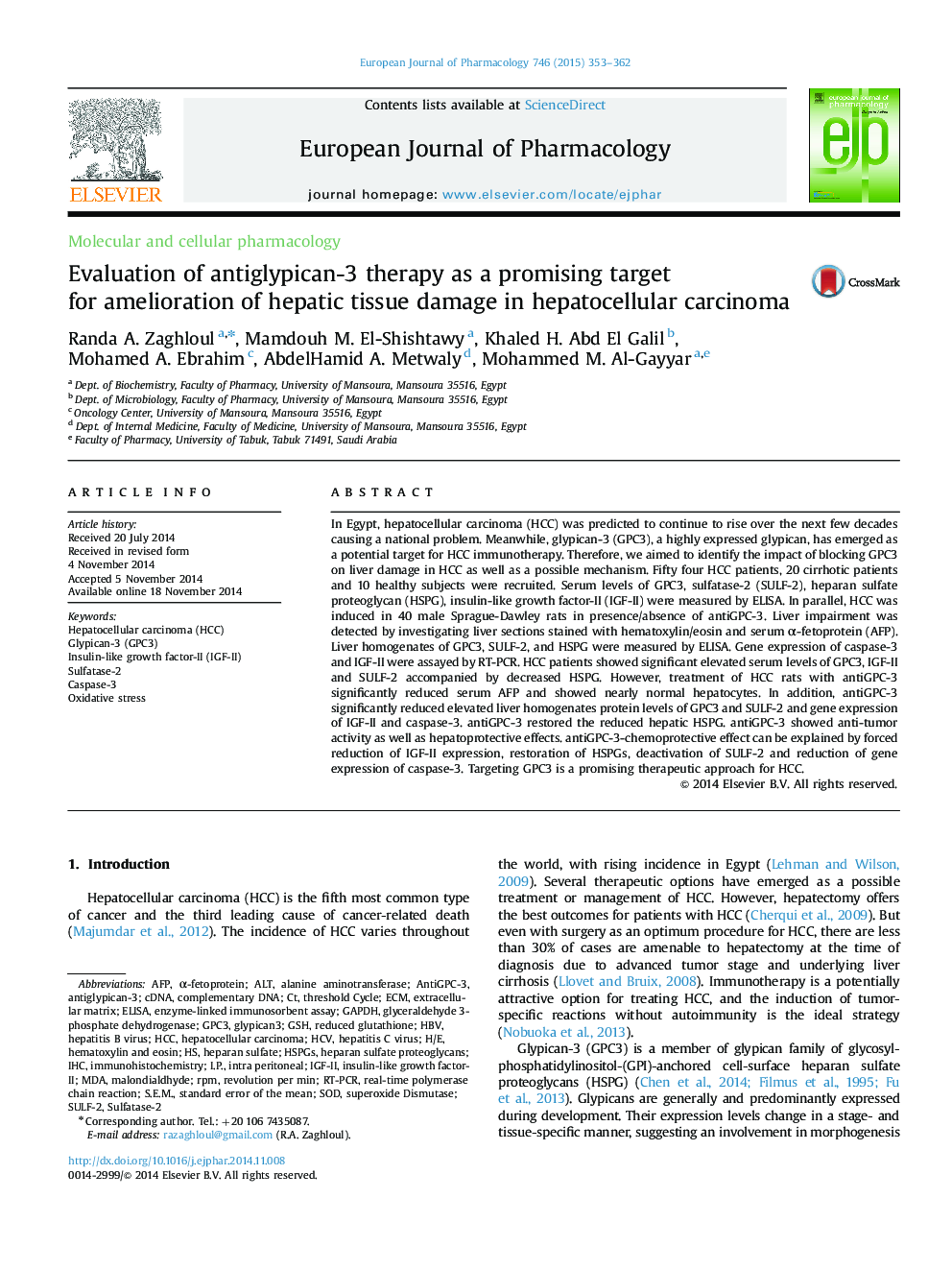| کد مقاله | کد نشریه | سال انتشار | مقاله انگلیسی | نسخه تمام متن |
|---|---|---|---|---|
| 2531558 | 1558935 | 2015 | 10 صفحه PDF | دانلود رایگان |

In Egypt, hepatocellular carcinoma (HCC) was predicted to continue to rise over the next few decades causing a national problem. Meanwhile, glypican-3 (GPC3), a highly expressed glypican, has emerged as a potential target for HCC immunotherapy. Therefore, we aimed to identify the impact of blocking GPC3 on liver damage in HCC as well as a possible mechanism. Fifty four HCC patients, 20 cirrhotic patients and 10 healthy subjects were recruited. Serum levels of GPC3, sulfatase-2 (SULF-2), heparan sulfate proteoglycan (HSPG), insulin-like growth factor-II (IGF-II) were measured by ELISA. In parallel, HCC was induced in 40 male Sprague-Dawley rats in presence/absence of antiGPC-3. Liver impairment was detected by investigating liver sections stained with hematoxylin/eosin and serum α-fetoprotein (AFP). Liver homogenates of GPC3, SULF-2, and HSPG were measured by ELISA. Gene expression of caspase-3 and IGF-II were assayed by RT-PCR. HCC patients showed significant elevated serum levels of GPC3, IGF-II and SULF-2 accompanied by decreased HSPG. However, treatment of HCC rats with antiGPC-3 significantly reduced serum AFP and showed nearly normal hepatocytes. In addition, antiGPC-3 significantly reduced elevated liver homogenates protein levels of GPC3 and SULF-2 and gene expression of IGF-II and caspase-3. antiGPC-3 restored the reduced hepatic HSPG. antiGPC-3 showed anti-tumor activity as well as hepatoprotective effects. antiGPC-3-chemoprotective effect can be explained by forced reduction of IGF-II expression, restoration of HSPGs, deactivation of SULF-2 and reduction of gene expression of caspase-3. Targeting GPC3 is a promising therapeutic approach for HCC.
Figure optionsDownload high-quality image (102 K)Download as PowerPoint slide
Journal: European Journal of Pharmacology - Volume 746, 5 January 2015, Pages 353–362